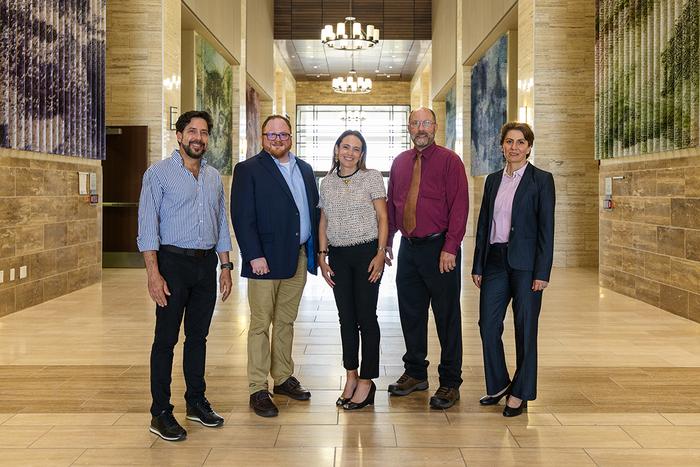A research team at the Texas A&M School of Veterinary Medicine and Biomedical Sciences (VMBS) has received a $5 million grant from the United States Department of Defense’s Defense Threat Reduction Agency to support the detection and prevention of brucellosis in Armenia.

Credit: Karis Olson/Texas A&M School of Veterinary Medicine and Biomedical Sciences
A research team at the Texas A&M School of Veterinary Medicine and Biomedical Sciences (VMBS) has received a $5 million grant from the United States Department of Defense’s Defense Threat Reduction Agency to support the detection and prevention of brucellosis in Armenia.
Brucellosis, which is caused by several bacterial species of Brucella, is a zoonotic disease that can spread to humans from dogs and major livestock species, including cattle, pigs, sheep, and goats. It can have a major impact on a country’s public health and agricultural economy.
The team of Texas A&M researchers, led by VMBS Associate Professor Dr. Angela Arenas, will conduct a five-year study of brucellosis in Armenia to evaluate the presence and prevalence of each Brucella species in animals and dairy products; to improve local detection capabilities; and to provide education and training to Armenian scientists, policymakers, and community members.
Their work will be conducted in partnership with the Reference Laboratory for Especially Dangerous Pathogens (RLEDP), part of Armenia’s Republican Veterinary-sanitary and Phytosanitary Center of Laboratory Services.
“Brucellosis is one of the most common diseases transmitted from animals to humans in resource-limited settings,” Arenas said. “It poses a significant threat to humans due to the high risk of infection from the consumption of unpasteurized milk and its products.
“In Armenia, the nature and extent of the disease remain unknown,” she said. “This project will allow us to better understand the situation in order to develop appropriate countermeasures to stop the disease spread.”
Brucellosis: An International Threat
Brucellosis is currently widespread and underdiagnosed in many countries like Armenia, largely because of a lack of local disease awareness and diagnostic capacity.
Previous studies have shown that many infected Armenians had consumed unpasteurized dairy products and that the country’s veterinarians and physicians have a lack of awareness of the disease and its symptoms.
Although brucellosis can spread between animals and to people, it causes different symptoms in each; infected animals tend to have reproductive problems, while infected people can have broad symptoms ranging from lifelong infection to a serious acute illness similar to malaria.
According to the U.S. Centers for Disease Control and Prevention, brucellosis is included in the second-highest category of potential bioterrorism agents because of its moderate ease to disseminate; its moderate morbidity rates; and its special diagnostic needs.
“Brucella is considered a biological threat due to the low number of bacteria required to cause infection,” Arenas said. “In addition, disease manifestation is non-specific, meaning that it causes generic flu-like symptoms, and it is, therefore, usually misdiagnosed.
“The research generated here will have a significant positive impact for the country because, for the first time, we will know the disease status and the risks,” Arenas said. “This research will allow the Armenian government to develop a control plan to stop the spread of brucellosis.”
By Megan Bennett, Texas A&M School of Veterinary Medicine and Biomedical Sciences
###



